Copyright 2008-2013



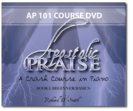

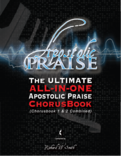

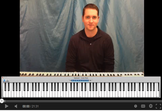
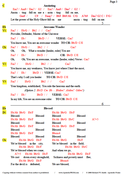

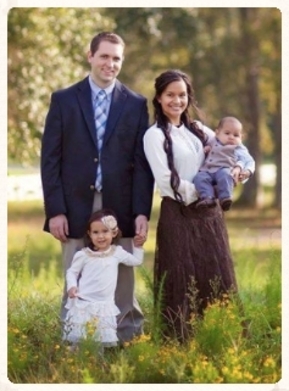
About Richard
Richard W. Smith has been playing for so long that he has forgotten how young he was when he started but it was around six years old! He possesses a love for and ability to play a wide variety of musical styles including black gospel, jazz, blues, contemporary gospel, southern gospel, classical, and Latin style.
He has been teaching piano lessons for many years to people of all ages. This is why you will find our courses easy and simple to understand, learn, and follow.
Read more
Richard W. Smith has been playing for so long that he has forgotten how young he was when he started but it was around six years old! He possesses a love for and ability to play a wide variety of musical styles including black gospel, jazz, blues, contemporary gospel, southern gospel, classical, and Latin style.
He has been teaching piano lessons for many years to people of all ages. This is why you will find our courses easy and simple to understand, learn, and follow.
Read more
Quick Links
Free Chord Sheets
Free Lessons & Tips
Listen to Richard's Music
Blog
Youtube Channel
Facebook
Free Chord Sheets
Free Lessons & Tips
Listen to Richard's Music
Blog
Youtube Channel
Contact Us
Apostolic Praise School
of Music
61 White Street
Hoschton, GA 30548
650-877-2473
apostolicpsom@gmail.com
Apostolic Praise School
of Music
61 White Street
Hoschton, GA 30548
650-877-2473
apostolicpsom@gmail.com
Double click here to edit this text.
Information for parents
____________________________________________________________________
If you want your child to be useful in church as a musician or keyboardist, these courses will fill a huge gap in your child’s music education.
Here is a bit of information on why they are so crucial.
There are strengths but also weaknesses in the way modern piano education usually is taught. Typically, children
learn to read classical music that gets progressively harder over time. This process teaches some very important skills
including the ability to sight read music (the lines and the bars) and technical skills (the physical aspects of playing the piano).
The problem with that approach is that it leaves out skills that are just as important, and in fact, more crucial to
becoming a church pianist. Those skills include the ability to play by ear and improvise.
As a result, young pianists often graduate with college music degrees knowing how to replicate classical music but not
having any idea how to play in church where the ear and improvisation are vitally important.
This problem is significant and there are at least two bad results.
1) Children dropping out of music as they get older. At some point, children realize that the ability to play classical
music has limited value because the chance to perform it is practically non-existent. If that is all they can do, they
have little incentive to keep playing.
2) Dearth of church pianists. There are tens of thousands of churches that need help on the piano.
Certain myths that have been passed around for the last several decades have not helped.
Myth 1: Classical music is the hardest music to play. If you can play classical music, you can play anything.
The reality is that there are many highly trained classical pianists who cannot play “Happy Birthday” unless the music is in
front of them. In church, they feel like a duck out of water. The reason is simple: playing music in a church requires
different skills than what is required to replicate classical music.
Myth 2: My children need to learn classical music now. They can pick up church music skills such as improvisation later.
Actually, the skills needed to play church music require just as much if not MORE time and effort. With very few exceptions, good
church pianists started learning early (long before college). If you want your child to be a good church keyboardist some day,
you should start teaching them the skills right now.
Myth 3: If you are not born with the ability to play by ear, you will never play by ear.
I did not start playing by ear until I was in high school, and I am not alone. Practically anyone can learn to play by ear.
In fact, there are thousands of musicians each year that learn to play not by reading but by ear. Playing by ear is an
important skill, and your child needs to learn it.
If you are the parent of a young pianist, and you want them to be functional some day in a church, you should start the
training NOW. We do not necessarily recommend that you replace their classical, traditional lessons with this training, but we do
suggest you supplement classical training.
That is what our courses are about. They fill in the gap between traditional lessons and becoming a functional church
pianist. Young children can study them for years and can become a very good church pianist long before reaching college.
These courses are exciting because they help children understand music. If they start at the beginning, they will learn
how to use music theory to improvise, which will unlock doors to places they will explore for life.
The courses are structured with lessons, goals, and homework)so that the child will learn the concepts well enough to
use them instinctively. Over time, you will see a dramatic difference in their music as well as their attitude toward music.
Want to talk to me before purchasing? My phone number is 650-877-2463 and I will answer any questions you want to ask to help you decide what courses you should buy. (If you get my voicemail, leave a message and I give you a call back.)
____________________________________________________________________
If you want your child to be useful in church as a musician or keyboardist, these courses will fill a huge gap in your child’s music education.
Here is a bit of information on why they are so crucial.
There are strengths but also weaknesses in the way modern piano education usually is taught. Typically, children
learn to read classical music that gets progressively harder over time. This process teaches some very important skills
including the ability to sight read music (the lines and the bars) and technical skills (the physical aspects of playing the piano).
The problem with that approach is that it leaves out skills that are just as important, and in fact, more crucial to
becoming a church pianist. Those skills include the ability to play by ear and improvise.
As a result, young pianists often graduate with college music degrees knowing how to replicate classical music but not
having any idea how to play in church where the ear and improvisation are vitally important.
This problem is significant and there are at least two bad results.
1) Children dropping out of music as they get older. At some point, children realize that the ability to play classical
music has limited value because the chance to perform it is practically non-existent. If that is all they can do, they
have little incentive to keep playing.
2) Dearth of church pianists. There are tens of thousands of churches that need help on the piano.
Certain myths that have been passed around for the last several decades have not helped.
Myth 1: Classical music is the hardest music to play. If you can play classical music, you can play anything.
The reality is that there are many highly trained classical pianists who cannot play “Happy Birthday” unless the music is in
front of them. In church, they feel like a duck out of water. The reason is simple: playing music in a church requires
different skills than what is required to replicate classical music.
Myth 2: My children need to learn classical music now. They can pick up church music skills such as improvisation later.
Actually, the skills needed to play church music require just as much if not MORE time and effort. With very few exceptions, good
church pianists started learning early (long before college). If you want your child to be a good church keyboardist some day,
you should start teaching them the skills right now.
Myth 3: If you are not born with the ability to play by ear, you will never play by ear.
I did not start playing by ear until I was in high school, and I am not alone. Practically anyone can learn to play by ear.
In fact, there are thousands of musicians each year that learn to play not by reading but by ear. Playing by ear is an
important skill, and your child needs to learn it.
If you are the parent of a young pianist, and you want them to be functional some day in a church, you should start the
training NOW. We do not necessarily recommend that you replace their classical, traditional lessons with this training, but we do
suggest you supplement classical training.
That is what our courses are about. They fill in the gap between traditional lessons and becoming a functional church
pianist. Young children can study them for years and can become a very good church pianist long before reaching college.
These courses are exciting because they help children understand music. If they start at the beginning, they will learn
how to use music theory to improvise, which will unlock doors to places they will explore for life.
The courses are structured with lessons, goals, and homework)so that the child will learn the concepts well enough to
use them instinctively. Over time, you will see a dramatic difference in their music as well as their attitude toward music.
Want to talk to me before purchasing? My phone number is 650-877-2463 and I will answer any questions you want to ask to help you decide what courses you should buy. (If you get my voicemail, leave a message and I give you a call back.)
